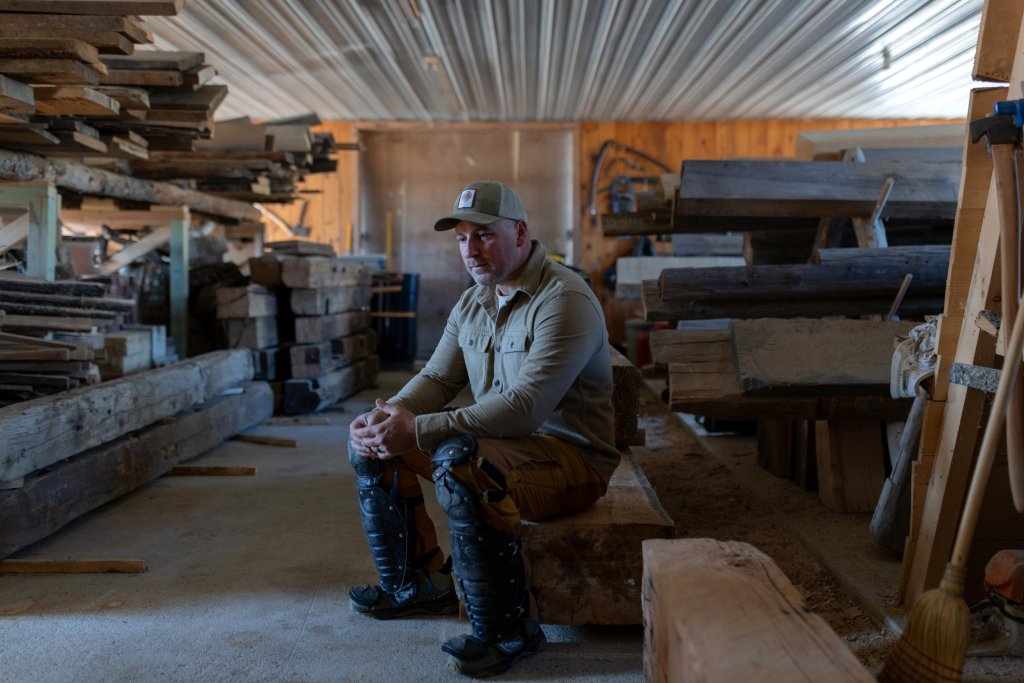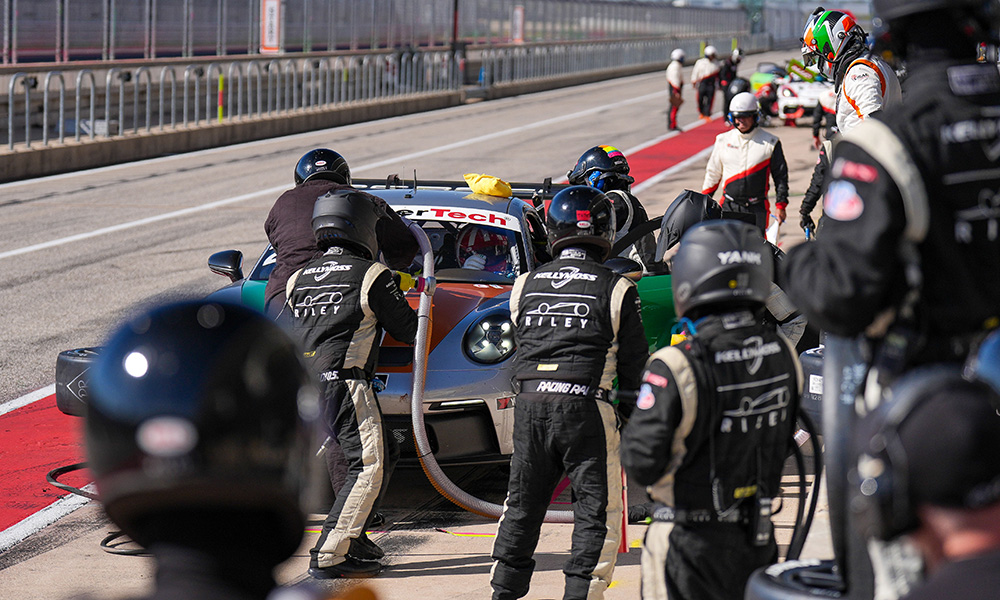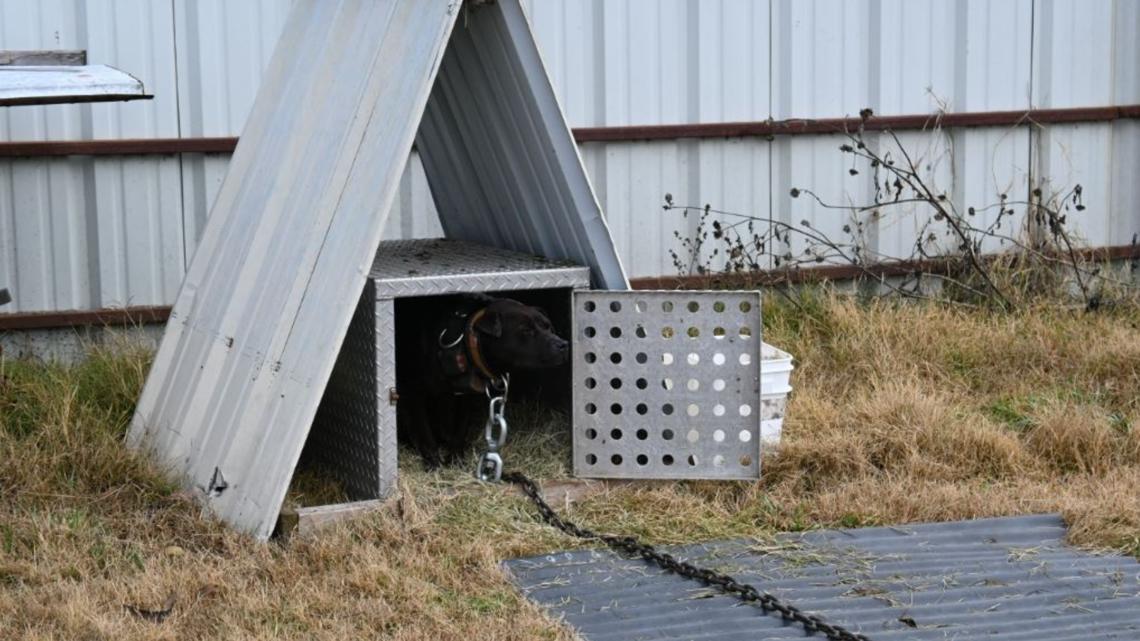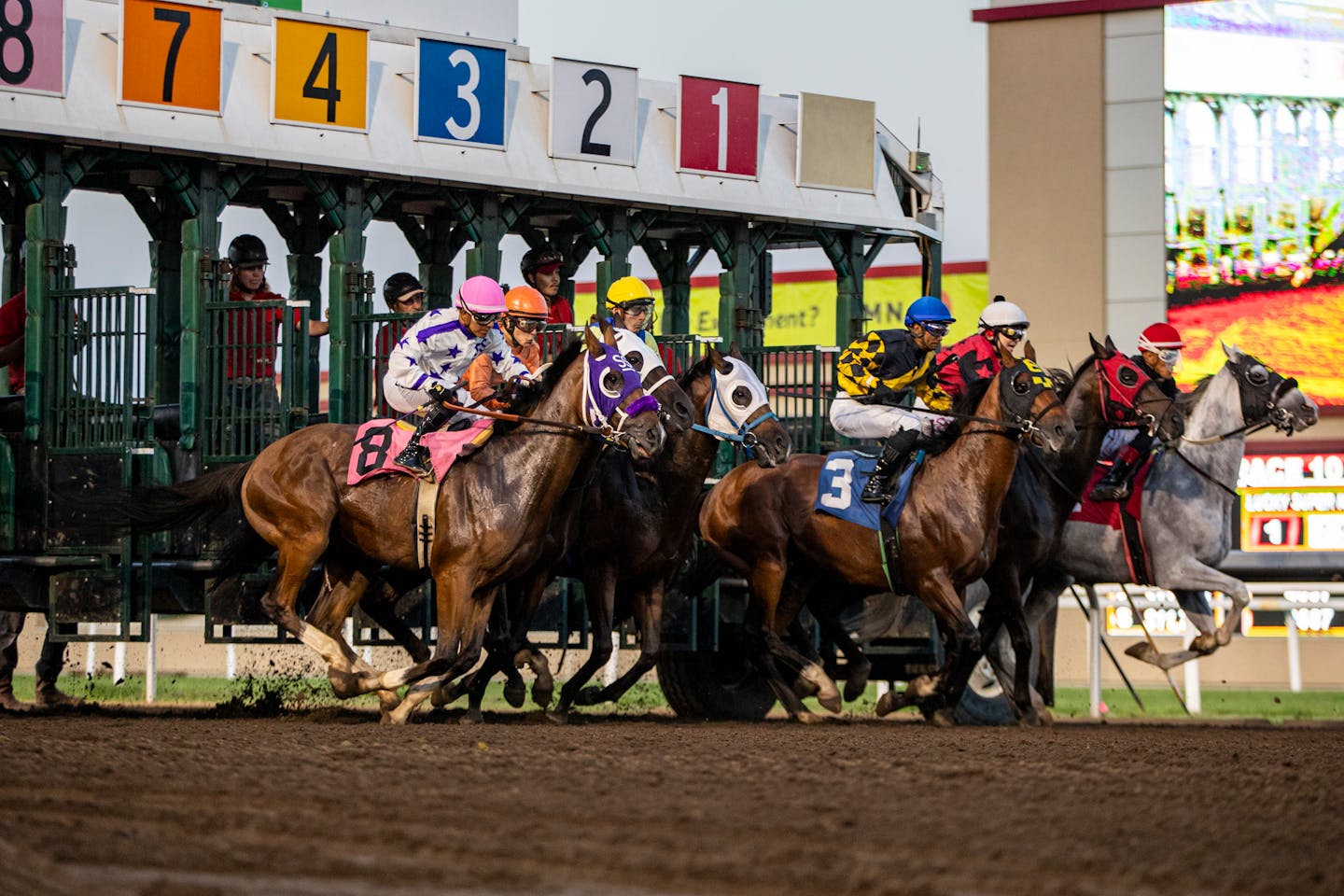
 Sign in or Subscribe See Offers
Sign in or Subscribe See Offers 
Account Subscription: ACTIVE
Questions about your account? Our customer service team can be reached at circulation@metln.org during business hours at (207) 791-6000.
Identical twins Steve and Nate Smith of Cumberland each split with the church, one as a teenager, the other many years later.
You are able to gift 5 more articles this month.
Anyone can access the link you share with no account required. Learn more.
With a Press Herald subscription, you can gift 5 articles each month.
It looks like you do not have any active subscriptions. To get one, go to the subscriptions page.
With a Press Herald subscription, you can gift 5 articles each month.
Steve Smith and his twin brother wrote a book about being raised in a fundamentalist Bible cult. His twin brother chose to leave when he was a teenager while Steve stayed. Smith left the church over a decade ago and now lives with his family where he grew up in Cumberland. Brianna Soukup/Portland Press Herald
For most of his childhood and into his adult years, Steve Smith was the spiritual successor at the Faith Baptist Church in North Yarmouth.
The chosen one.
Pastor Wesley Harris identified him among congregants early on and began to mold the boy in his image.
“He even sent me to his barber to get the same haircut,” Smith said. “It was that level of shaping and control … and I was very pliable.”
Harris, by contrast, was rigid, both in posture and in his lessons from the pulpit. As far as Smith was concerned, the pastor spoke for God. And who was he to question God?
“Everybody is searching for love, and security, and meaning,” he said. “And a cult, big or small, provides all of those things if you follow the rules.”
It took a long time for Smith, now 44, to find the right language for what he endured. He believes the church was a cult and Harris was its leader. But his experience fits into a broader category of what psychologists call religious, or spiritual, abuse. It’s harder to explain than physical or sexual abuse, but no less insidious.
“Everything I thought was true was either twisted or an outright lie,” he said.
Harris’ questionable leadership of the small, suburban Maine church made news more than two decades ago when a feud between the pastor and a Sunday school teacher led to false allegations of sexual abuse.
But that story receded quickly into the background.
Smith and his identical twin brother, Nate, are shedding new light on what happened in the church, how it tore their family apart, and how it has shaped their lives.
It’s a story about the bond between brothers and their faith.
And about how both were tested.
Faith Baptist Church on Route 9 in North Yarmouth in a 2002 file photo. John Patriquin/Portland Press Herald
The Faith Baptist Church was a small but handsome brick sanctuary set back from Route 9 in North Yarmouth not far from the town border with Cumberland.
Harris arrived there in the mid-1980s from Texas. He had been a Sunday school teacher before, never a pastor, but his knowledge of the Bible was deep and his conviction unquestioned. The congregation narrowly voted to approve his hiring.
It didn’t take long for Harris to adopt an authoritarian style. He took over the finances, started enforcing a dress code and told church members to stop celebrating holidays, including Christmas. The church, he said, needed to be the focal point in their lives.
Steve Smith was among the congregants, along with his parents, older sister and Nate.
Even as a young child, Steve remembers fissures in the church. People who spoke out against Harris’ ways were quickly exiled. He vaguely remembers a big split in the late 1980s when he was 8.
“By the end of the summer, half the church was gone,” he said.
A few years later, a tense encounter between Harris and a member led to an investigation of his leadership by the regional branch of the Conservative Baptist Association, which led to the church’s expulsion. The congregation shrank again.
Steve and Nate Smith were in high school by then and had developed disparate feelings about their pastor.
Steve still saw a mentor and believed Harris when he said that it was good that people were leaving the church. It meant only the most pious remained.
Nate, however, started to see holes in the puritanical beliefs Harris espoused.
“In my mind, it had crossed the line into a very inappropriate domineering abusive environment,” he said in a phone interview from his home in suburban Atlanta. “I knew it wasn’t going to get better, and I knew I couldn’t stay.”
Leaving the church meant leaving his family, too.
In December 1997, Nate moved in with a friend across town. The only time he saw his twin brother was at school. His family – at Harris’ insistence – shunned him.
Shortly after Nate graduated from Greely High School, he enrolled at Virginia Military Institute. After that, he enlisted in the Marines. He’s the first to acknowledge the parallels between the strict church he fled and the controlled military environment he ran toward.
“For a long time, I did choose environments that were black and white,” he said.
Steve didn’t understand his brother’s decision. How could he turn his back on the church? On God?
But he was also envious. Steve had wanted a military career, too. Both brothers remember with great reverence the stories of their grandfather, who served in World War II.
Pastor Harris had different plans for him.
Nate (left) and Steve Smith pose for a picture at their childhood home in December 1988. Photo courtesy of Steve Smith
The same year Nate and Steve graduated from high school, Harris attended training in Kentucky on theophostic counseling, which involves recovered memory therapy and deliverance from demons. It’s not a widely accepted form of counseling within the broader Baptist church.
Armed with this new technique, he began counseling church members, mostly women, and in almost every instance they were found to have repressed a memory of sexual abuse. Harris would then talk about this abuse from the pulpit, Steve Smith said, often in lurid detail, even with children among the parishioners.
“It was a paradigm shift, I can still remember it,” Steve said. “Just the darkness of what he was sharing.”
Not everyone embraced Harris’ new methods.
Thomas Wright, once a Sunday school teacher at Faith Baptist, left the church in 2000 after challenging Harris.
Two years later, Wright was arrested. He was accused of molesting a boy who attended the church. Later, six other church members claimed Wright had abused them, too. All had been counseled by Harris.
The criminal charges against Wright brought the inner workings of the church into the public.
The Press Herald and other media organizations started digging. Wright denied the allegations and said it was Harris retaliating against him. Other former church members spoke out about the pastor’s methods.
Prosecutors later dropped the charges against Wright, saying there was no credible evidence and citing the internal feuding in the church and the questionable use of repressed memory therapy.
At the time, Steve Smith was attending Taylor University, a small Christian liberal arts college, but he said he remembers the stories as another point of friction among congregants.
Steve remained fully under Harris’ power. Even from thousands of miles away, the pastor controlled much of his life. He warned him against socializing too much. Dating was out of the question. And he used guilt and fear to keep Smith in line.
Laura Anderson, a psychotherapist and religious trauma expert in Tennessee, said religious abuse is more common than people think. She speaks from experience. She, too, grew up in what she calls a “high control” church and didn’t break away until she was a young adult.
Three years ago, she founded the Center for Trauma Resolution and Recovery, a network of 18 practitioners that counsel hundreds across the country.
Religion, or Christianity even, is not a monolith. Not every church is led by pastors like Harris, but “at its core, trauma is trauma regardless of the preemptive event or experience,” she said.
Nate Smith (center) stands with officers of Company K, 3rd Battalion, 2nd Marines in June 2005 after an operation in Iraq’s Al Anbar Province. One Marine was killed and several more injured. Photo courtesy of Nate Smith
It was easy enough for Nate Smith to forget about Faith Baptist Church and Pastor Harris.
Letting go of his family was more complicated, especially when he was deployed in a war zone.
“It was unspeakably tragic in many ways,” he said.
Nate’s first deployment was in 2005 after Saddam Hussein had been captured and the Bush administration abandoned its search for weapons of mass destruction.
It was an uncertain time, and Nate was in an infantry unit, which often meant there was little daylight between him and danger. Snipers. Improvised explosive devices. He both saw death and escaped it.
During his second deployment, in 2006, the moral toll started to weigh heavy.
As a platoon leader, he couldn’t express weakness to his soldiers, so he started writing instead.
Even though he left his childhood church as a teenager, Nate still considered himself a man of faith. But he admits that during his second deployment, he stopped talking to God, and even blamed God for putting him there.
In time, he’s let most of that go. Being a civilian, a husband and a father has smoothed his edges.
His departure from the military also prompted him to consider reaching out to his estranged family.
“If I wasn’t going to reconnect then, I never would,” he said.
Nate was transitioning to civilian life when he wrote his parents a letter, opening the door to reconciliation.
He was surprised when they gave him a call.
That’s how he learned that the church had disbanded. His parents and siblings were reckoning with the same things he faced as a teenager.
Steve Smith never felt particularly called to ministry.
“It was just ordained,” he said.
Harris went to Dallas Theological Seminary, so that’s where Steve would go. The church was paying part of the cost, so he felt indebted.
Still, he could feel himself breaking away, especially as he learned more about his pastor’s descent into repressed memory therapy.
After counseling most of his congregants, Harris decided he would counsel himself, Smith said, using his wife as a “kind of medium to talk directly to God.”
“It became an extreme downward spiral that led to a complete breakdown,” Steve said.
Harris was admitted to a psychiatric hospital.
Shortly thereafter, two deacons at the church met and decided the congregation should vote on whether to remove their pastor. The vote was unanimous.
By the time Harris was ousted, Steve already had begun writing down all the things he thought needed to change at Faith Baptist Church.
“I was planning on being an internal reformer like Martin Luther. I would nail my grievances to the door,” he said, referring to the 16th-century theologian who defied the Catholic Church and gave birth to Protestantism.
Steve never saw Harris again, although he did write him a letter outlining the ways in which he felt Harris had poisoned his mind.
Harris later called Steve and left a message.
“He said, ‘I’m sorry you feel I’ve hurt you,’ sort of a classic non-apology,” Steve said. “And then he said, ‘If it’s God’s will, maybe we can get together.’ ”
They never did. Harris died in 2014 at a nursing home in Yarmouth.
Nate (left) and Steve Smith in Houston, Texas, in October 2011, about a year and a half after they reunited after being estranged for 13 years. Photo courtesy of Steve Smith
Faith Baptist Church operated with part-time pastors for a few months after Harris’ departure but then closed. A new congregation later moved in, called White Pine Community Church, that still operates today. The Smiths’ parents are among the congregants.
“When the church did finally fall apart, my mom was happy,” Steve said. “I think my dad was a little more bewildered but then also came around pretty quickly to recognize that it had been a toxic and abusive place.”
The Smiths weren’t the only family upended by the church’s collapse.
David Harris, the oldest of Wesley Harris’ three children, said his father’s reign over the church and eventual breakdown was devastating for them, too.
“There was so much pain and hurt to go around,” he said.
Harris lives in South Carolina where he moved less than a year after the church closed. The last time Harris set foot in Faith Baptist Church was when he got married in the summer of 2010. The small towns of Cumberland and North Yarmouth became unfriendly places for his family.
Harris said he now sees that his father was a narcissist and a destructive force on the church community.
“The hardest thing was that dad could or would not see how he had hurt people,” he said. “I think anytime we overextend and control what isn’t ours to control, that’s only going to cause pain.”
Harris, 50, has never really told his part of the story publicly.
“I’ve spent the last 12 years trying to heal,” he said. “And I think I have.”
If anything, his faith is stronger now than when his identity was tied to his father’s profession.
“I came to a point where I would try to reason something without God, I can’t do it. I can’t understand this world without God,” he said.
Steve and Nathan Smith’s book at his workshop in Cumberland. Brianna Soukup/Portland Press Herald
Nate and Steve’s reconciliation was gradual.
Each had taken to writing to process what they had gone through – Steve’s focused more on religious trauma and processing his break with Pastor Harris; Nate’s on the cruelty and banality of war.
They sometimes shared parts of journal entries each had written via email.
“We both found those writings fascinating and helpful because neither of us had experienced exactly what the other had,” Nate said. “And we weren’t at a place where we would sit down and talk about it over a beer.”
After a while, though, they knew they were headed for an in-person meet.
Steve was living in his seminary apartment in Texas and Nate said he’d come to see him. It was May 2010. They hadn’t seen each other in 13 years, but they were identical twins. It was still like looking in a mirror.
“Hello brother. It’s been a while,” Nate said.
They hugged for a long time.
Shortly after, Nate started putting his writings on a blog he titled “The Soldier’s Load.” Steve launched his own blog, “Liberty for Captives.”
Neither website had a massive following, but both brothers said they found catharsis in writing and connecting with others who had similar experiences.
It was from those entries they developed the idea to collaborate on a book titled “Men of God, Men of War,” that published this summer.
“I think crystallizing the story in the book and sharing that with my brother and having my family read it, it was a real point of healing,” Steve said. “We tell stories to make sense of the world.”
Steve Smith hand-hews a log at his home in Cumberland. Brianna Soukup/Staff Photographer
How do you find faith again when all you know of religion is steeped in control and abuse?
“The idea that you should just renounce faith and make fun of people who have it, that doesn’t really get at the complexity,” said Anderson, the religious trauma expert. “Atheism might be where someone lands, but how we deal with trauma is different than how we end on our own spiritual path.”
Nate said his faith never went away, it was just recalibrated.
“I never doubted the existence of God,” he said. “There was a period of time in Iraq when I stopped talking to God, but I never lost faith.”
These days, he’s still surrounded by people of what he calls healthy faith. And he doesn’t mind talking about his own spiritual journey.
“Knowledge is always the antidote,” Nate said.
He has a wife and three young children. After his military service, he worked for years at a veterans’ nonprofit and now is the chief operating officer of a financial planning firm in Atlanta.
His life is in Georgia now, but he still thinks of Maine.
“It’s my dream at some point to spend part of the year there,” he said.
Steve didn’t become a pastor. Today, he works for himself, hand-hewing timber, which means turning round tree logs into square beams using only an axe. They are used as mantels, ceiling beams or other interior accents. His company, Renaissance Timber, operates out of the old barn on his homestead and is the only commercial hand-hewing business in Maine.
He and his wife, Teresa, have two children. They met at Dallas Seminary and started dating soon after the church crumbled.
After seminary, they moved to Ohio, where she attended college. But Maine always felt like home, Steve said.
“My folks were thinking of maybe selling the place and we were like, ‘you know what, let’s just move next to them,’ ” he said.
So, they did.
Steve knows he’ll never reembrace the beliefs of conservative, fundamentalist Christian groups or come under the control of a pastor like Harris.
But like his brother, his faith wasn’t destroyed. It’s just simpler now.
“There is a reason I work in the woods, a reason I’m working with my hands and in nature,” he said. “That’s my happy place … that’s where I commune with God, in my own way.”
As children, the Smith brothers spent a lot of time at their grandparents’ property in Eddington, on the banks of the Penobscot River.
Steve still thinks a lot about the river, about how it’s always moving, down to the sea on its ordained path. That’s how he sees his life now.
We invite you to add your comments. We encourage a thoughtful exchange of ideas and information on this website. By joining the conversation, you are agreeing to our commenting policy and terms of use. More information is found on our FAQs. You can modify your screen name here.
Comments are managed by our staff during regular business hours Monday through Friday as well as limited hours on Saturday and Sunday. Comments held for moderation outside of those hours may take longer to approve.
Please sign into your Press Herald account to participate in conversations below. If you do not have an account, you can register or subscribe. Questions? Please see our FAQs.
Your commenting screen name has been updated.
Send questions/comments to the editors.
« Previous
Next »
source











